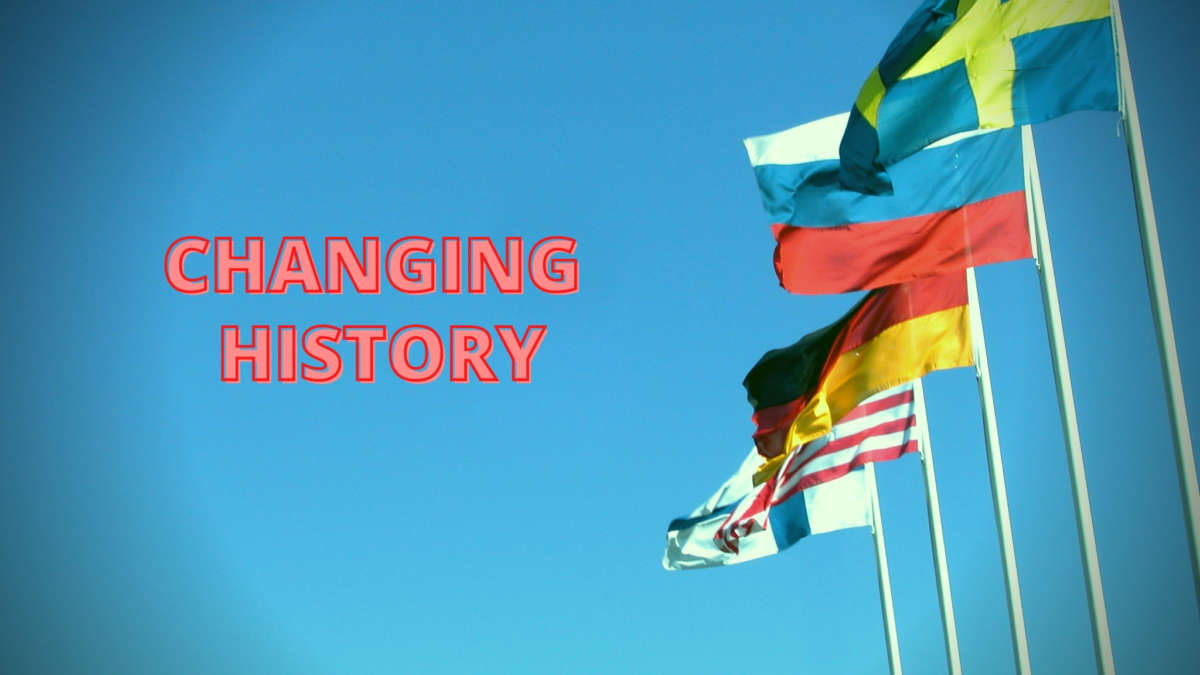Sometimes the best stories are the real ones. If that’s the case, history has given us an ongoing series to enjoy. Maybe “enjoy” isn’t the right word; some are tragic, yes, but some are inspiring, and all are crucial to our understanding of our past and ourselves. Delving into these moments in history means that you’re wielding a secret weapon. Not only do you get to read fascinating narratives that detail things you can’t make up, but you’re educating yourself in the process.
What takes these historical accounts to the next level are the human dramas behind them. Even though events like the American Revolution or the Cuban Missile Crisis are behind us, real people experienced them and can offer a perspective that opens our eyes to the trials they went through. Such events have forever changed the world and the lives of people, even today. Below, we’ve chosen a selection of books on turning points in history, ones that will make you a better-informed citizen as well as someone with the inside intel on intriguing international imbroglios.
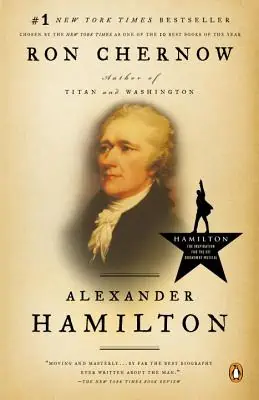
Alexander Hamilton by Ron Chernow
If it weren’t for this comprehensive biography about Hamilton’s life, then Hamilton the musical would have never been created, and then where would we be? Lin-Manuel Miranda cites Chernow’s biography as his inspiration, and when you read it, it’s easy to see why. Alexander Hamilton was a man of many astonishing achievements and a catalyst in the birth of our nation. If you want to know more about the formidable — and often sensational — life of one of America’s founding fathers, then look no further; if you thought the Broadway soundtrack was a wealth of information, then just wait until you dive into all 818 pages of the book that ended up being a cultural and historical turning point in and of itself!
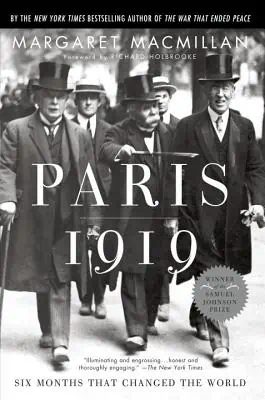
Paris 1919: Six Months That Changed the World by argaret MacMillan
This book is quite an achievement, being a national bestseller, New York Times Editors’ Choice, Winner of the PEN Hessell Tiltman Prize and Winner of the Duff Cooper Prize. In the fateful year of 1919, over the course of six months, three powerful world leaders met and mapped out some changes that would lay the groundwork for the Treaty of Versailles and define the geography of the modern world. They were President Woodrow Wilson, British prime minister David Lloyd George, and French premier Georges Clemenceau, each worthy of a book (or ten) alone. Together, their contrasting personalities, motivations and responsibilities to their respective countries make for some fascinating real-life drama in Margaret MacMillan’s meticulously researched account.
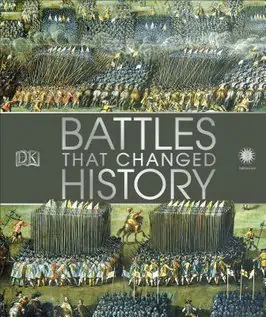
Battles That Changed History by DK
Sometimes you just want to read a DK guide and trust that you’ll be a smarter person after finishing it. Replete with handy timelines, maps and representations of noteworthy art and culture during these crucial time periods, this book provides an overview of over 90 pivotal battles that shaped the world and created life as we know it today. Beginning a long, long time ago, before 1000 C.E., we revisit the battle of Thermopylae and ancient worlds at war. Winding our way across continents as nations rise and fall, we arrive at the present day with a better understanding of how we got here. It’s a visual adventure as well as a historical one, and what it lacks in depth it makes up for in scope and sweeping summarization.
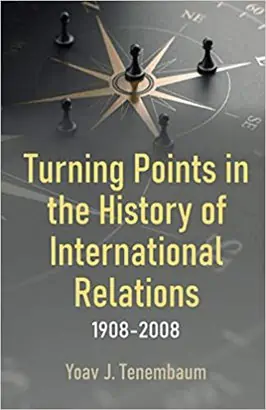
Turning Points in the History of International Relations, 1908-2008 by Yoav J. Tenembaum
This book starts by defining what a turning point in the history of international relations even is, and then proceeds to assess, in a thought-provoking manner, some of history’s principal turning points from 1908 to 2008. Key moments manifest in many different ways and lend significance to historical events, deeply enhancing our understanding of historical processes. The aim of Tenembaum’s book is not to dissect each and every historical case study, but rather to focus on the reasons to think of them as turning points in the history of international relations. The chapters are presented in the form of short essays, some shorter than others, depending on the subject up for discussion. This makes it a great choice for something to dip into again and again. By the end, readers will have more knowledge of these pivotal, and compelling, moments that changed everything.
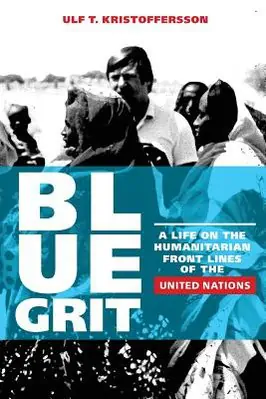
Blue Grit: A Life on the Humanitarian Front Lines of the United Nations by Ulf T. Kristoffersson
“I have been shot at, taken hostage, bombed, threatened and evacuated. I’ve witnessed the evidence of massacres and famines. I’ve put colleagues in body bags.” This is no global thriller we’re talking about. This is the fascinating and often-harrowing memoir of Ulf T. Kristoffersson, reflecting on the most perilous humanitarian and peacekeeping missions of his 40-year career with the United Nations. Kristoffersson served six Secretaries-General, joined four UN agencies, was posted to 17 duty stations, operated in nine emergencies and traveled to close to 100 countries. His book is an up-close account of how the UN operates, how it affects the people who serve it, and a primer on some of the world-altering international crises in which it has offered support and relief. The book provides a candid inside look at an important world organization, analyzed not only with a bird’s eye view but from deep in the trenches with the strains of people in the throes of assault and struggling to survive. Read our review here.
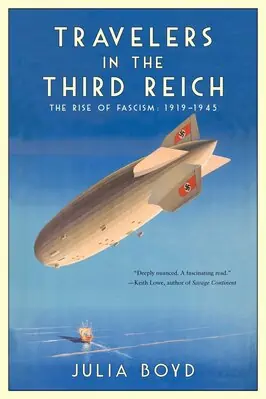
Travelers in the Third Reich by Julia Boyd
Unfortunately, the years from 1919 to 1945 are an extremely trenchant time in our history. In this honest and wrenching book, Julia Boyd takes us on a journey through the rise of Nazi Germany using real stories recounted by real people. Some you may know, such as Charles Lindbergh and Samuel Beckett, and others are more obscure, but their tales are no less poignant. Boyd singles out recollections that are deeply personal to the narrator yet shed light on universal, and terrible, truths that haunt us to this day. Many thought that they would remain untouched by the tortures inflicted upon others around them, then ended up experiencing unforeseen horrors as the poison spread exponentially throughout the years. It is important to remember that this turning point still has much to teach us about the evils that can befall civilization if left unchecked. Read our review here.
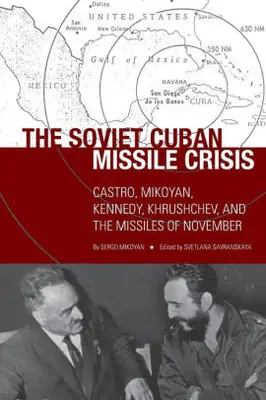
The Soviet Cuban Missile Crisis: Castro, Mikoyan, Kennedy, Khrushchev, and the Missiles of November (Cold War International History Project) by Sergo Mikoyan
The Cuban Missile Crisis was even more complicated and convoluted than you might think. In this extensively researched account, author Sergo Mikoyan describes how it actually went on long past the 13 days we usually associate with the event. Also, the men who commanded the chain of events all had skeletons in their closets and hidden agendas that make the narrative seem practically fictitious. Notice that one of the men in the title has the same name as the author; it is the author’s late father who commandeered the high-stakes negotiations, and the author himself served as a personal secretary. Readers are thereby handed a backstage pass to witness this real drama unfold.

